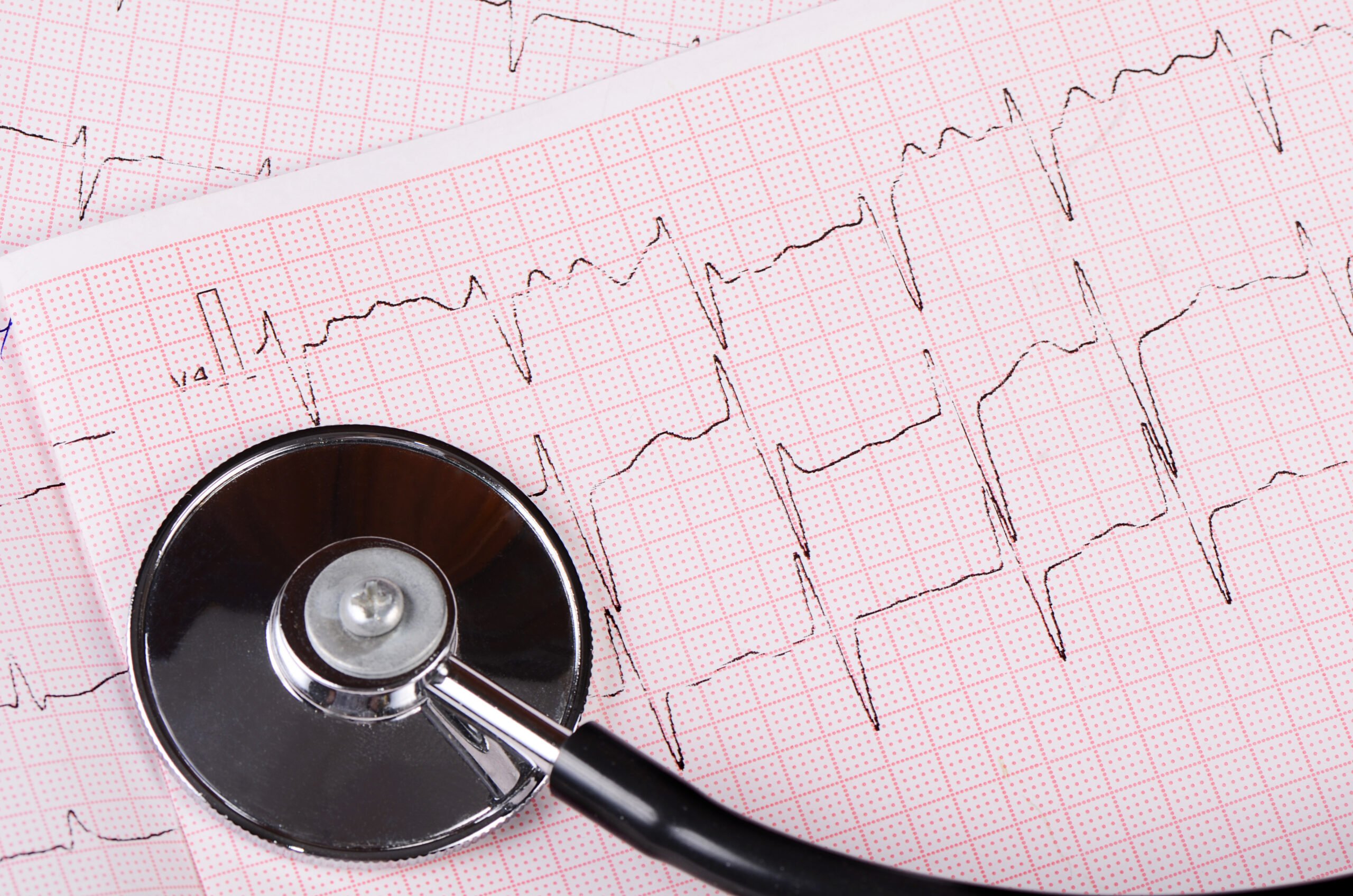We all occasionally become more aware of our heartbeat — we have all felt our hearts racing and some of us feel heart fluttering, pounding or skipping a beat. Collectively, these sensations are called palpitations, and while they can be unsettling, they are often harmless. In this article, I aim to help you to understand what palpitations are, when to be concerned, and what we can do about them together.
What are heart palpitations, and what causes them?
In many cases, palpitations are not a sign of a serious problem. Some common, non-cardiac causes include:
- Stress or anxiety
- Caffeine (especially from coffee, tea, energy drinks)
- Alcohol
- Nicotine
- Other recreational drugs eg amphetamines
- Lack of sleep
- Strenuous exercise
- Fever
- Hormonal changes (e.g., during menstruation, pregnancy, or menopause)
Palpitations can also be caused by certain medications (like inhalers or decongestants) or underlying conditions such as:
- Anaemia (lack of haemoglobin to carry enough oxygen around the body)
- Thyroid disorders (particularly an overactive thyroid or ‘hyperthyroidism’)
- Heart rhythm problems (arrhythmias)
When should you be concerned about palpitations?
While most palpitations are harmless, there are times when you should seek medical advice. Please contact the surgery or seek urgent care if you experience:
- Palpitations with chest pain, dizziness, or shortness of breath
- Palpitations that occur very frequently or last a long time
- Palpitations which are brought on during or after exertion. We often feel our heart racing during exercise but if, for example, we feel this more obviously or in a different way or it is occurring more readily than normal.
- A very fast or irregular pulse (especially if it comes on suddenly)
- Palpitations and you already have a known heart condition or have a family history of sudden cardiac death
How do doctors investigate palpitations?
We usually start with a discussion about your symptoms, lifestyle, and medical history. Depending on what we find, we may recommend:
- A physical examination
- Blood tests– particularly to check: thyroid function, a full blood count (to check for anaemia or infection) and electrolytes
- An ECG (electrocardiogram) to look at your heart’s rhythm
- A heart monitor worn at home for 24–48 hours if the palpitations are relatively frequent or for up to 2 weeks if they are infrequent.
- In some cases, we may refer you to a cardiologist (heart specialist) for further assessment.
How to stop or prevent heart palpitations?
There are a few simple steps you can take that may help reduce palpitations:
- Cut back on caffeine and alcohol
- Avoid smoking and recreational drugs
- Try to manage stress through relaxation, mindfulness, or gentle exercise
- Get enough rest and hydration
- If your palpitations are related to anxiety, we can also talk about treatment options, including talking therapies or medication where appropriate.
- If your palpitations are infrequent, booking an appointment when you experience them, if possible, may allow us to catch any abnormality on carrying out the ECG.
What types of heart arrhythmias can cause palpitations?
Benign Heart Arrhythmias:
- Ectopic beats
These are early or extra beats, also known as ‘extra systoles.’ They can feel like a skipped beat or a sudden thump. Sometimes they are associated with feeling like your breath has suddenly and very temporarily been ‘taken away’ or like you need to cough. They are very common amongst the population and are usually harmless. Stress, lack of sleep and fevers can be triggers.
- Sinus tachycardia
This means your heart is beating in a regular but fast rhythm (‘tachy’ meaning ‘fast’, cardia relating to the ‘heart’). This normally occurs during exercise and is the cause of most of the non-cardiac causes of palpitations, listed above.
Arrhythmias that may need monitoring or treatment:
In this article, I am focusing on atrial fibrillation, as it is one of the most common causes of palpitations.
- Atrial fibrillation (AF)
What is Atrial Fibrillation? This is one of the most common types of irregular heart rhythm. In AF, the upper chambers of the heart (the atria) beat out of sync with the lower chambers. The heart rate may be above the normal range of 60-100 beats per minute.
Why does it matter? Blood may not pump as effectively, especially if the rate is very fast. This could worsen an existing heart problem or lead to a new heart problem, such as heart failure. There is also an increased risk of stroke.
What can doctors do to help? We usually start by checking there are no underlying causes evident in a blood test. We then check that you have no structural problems with your heart by sending you for an echocardiogram (a type of ultrasound). Medications are sometimes given to slow the heart rate down and blood thinners may be given to decrease your stroke risk.
Is there a cure? Cardiologists may also recommend chemical or electrical (an electric shock under sedation) cardioversion, to shock the heart back into a normal rhythm. Alternatively, they may advise a catheter ablation, where a thin wire is fed through the groin into your heart (usually the right upper chamber or ‘atrium’) to destroy a small area of the heart causing an abnormal rhythm, using heat (radiofrequency) or cold (cryotherapy).
What is new in AF treatment? Pulsed wave ablation is a novel non-thermal technique using small electrical impulses to destroy heart tissue. It has been shown to cause less collateral damage to surrounding heart tissue; and seems to be a faster technique with less recovery time.
What can I do to reduce my risk if I have AF? Adopting a healthy lifestyle to minimse other cardiac risk factors is important, to include minimising stress, alcohol and caffeine intake and avoiding any recreational drugs. It may also be worth considering if you have sleep apnoea, which can be treated.
- Atrial flutter
- This is similar to atrial fibrillation with a slightly more organised but fast heart rhythm. The risks and treatment options are similar to atrial fibrillation.
- Bradycardia (‘brady’ meaning ‘slow’ and ‘cardia’ meaning ‘heart’)
- Many athletic people have a resting heart rate below the ‘normal range’ of 60-100, which can be a sign of good cardiovascular health.
- If however, there are other rhythm abnormalities leading to the slow heart rate and/or patient is experiencing light-headedness or fainting with it, sometimes a pacemaker will be necessary.
- Pacemakers are now relatively straight-forward and quick procedures to carry out.
- Ventricular tachycardia
- This is a fast rhythm that starts in the lower part of the heart (the ventricles). It can be more serious, especially if it lasts more than a few seconds.
- It may cause chest pain, fainting or collapse and so usually a patient’s symptoms will trigger a 999 call.
- It requires urgent hospital attention.
Final thoughts on heart palpitations
Palpitations are a common complaint, and most of the time, they aren’t serious. Still, they’re worth checking out — especially if they come with other symptoms or affect your daily life. If you’re concerned, please don’t hesitate to make an appointment. We’re here to help you feel informed, reassured, and supported.
To book an appointment, you can use the link here or call us on 0207 245 9333.
References
Assessment of palpitations | The BMJ
About the author

MBBS MA (Oxon) MRCGP DRCOG
“There’s nothing quite as rewarding as hearing you have really helped someone who has been struggling for some time”.
I am a generalist and proud. Healthcare is so much broader than just disease and the symptoms presented, and I believe it’s my holistic multi- disciplinary approach that helps me to help patients most. Getting to know patients and what motivates them are key to supporting them to lead a healthy lifestyle.
I have a specialist interest in gynaecology, developed through my weekly work in an NHS community gynaecology clinic. I hold a diploma in Obstetrics and Gynaecology and have also taught private antenatal classes. I enjoy all aspects of Adult Medicine and have gained plenty of experience in paediatrics through my time at the Sloane Street Surgery. Mental Health awareness is so important too. I’ve always been fascinated by the human mind, and it’s rewarding to make real progress through the therapeutic relationship.



